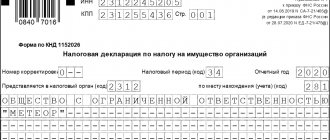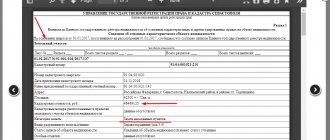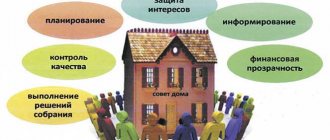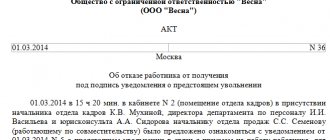Donation agreement - registration requirements
Since donation is a gratuitous transaction, it usually occurs between close relatives. Although the legislator does not limit the transfer of property to a non-relative in terms of preference. The design algorithm makes no difference. However, close people are exempt from paying tax upon purchasing real estate in this way.
The donation process can be divided into several logical stages:
- Drawing up the text of the agreement and signing it by the participants.
- Certification by a notary (however, this is not a mandatory step and is carried out at the request of the parties).
- Submitting an application and necessary documentation to Rosreestr for re-registration.
- Obtaining paper from the register about the prerogative of ownership of the dacha by the new owner.
In 2021, if an agreement is concluded between close relatives, then the text of the document must indicate this and, moreover, prove the relationship with paper support - a marriage or birth certificate and others.
To the category of close ones at the legislative level according to Art. 14 of the RF IC and clause 18.1 of Article 217 of the RF Tax Code are usually attributed to:
- children, both natural and adopted;
- parents;
- grandparents and grandchildren;
- brothers and sisters.
If the donee is not included in the listed list, then upon completion of the procedure at the end of the tax period, an income tax must be paid to the state treasury.
In the absence of a notarization, certain subtleties should be taken into account when drawing up and executing the contract, namely:
- It is not allowed to compose the text of the agreement in free form, since employees of the registering institution will in any case check the document for errors. If they are available, the entire package of documentation will be returned and registration will be denied. In this case, it is better to immediately seek advice from professionals.
- The number of copies of the agreement is identical to the number of participants in legal relations and plus one for the registering government agency. There can be several donors and recipients. Typically three copies are required since there are only two participants speaking.
- The actual transfer of the prerogative of ownership will occur only after the participants have recorded the deed of transfer, which describes the entire property mass given to the donee.
The procedure for re-registration: when is it better to make a will, and when is it better to make a deed of gift?
The second option on how to officially transfer a dacha to another person is to make a will.
It is necessary to compare all the pros and cons to make the right decision.
3 advantages of deed of gift:
- There will be no grounds for disputes between heirs regarding the division of property. The property is removed from the estate when a will is made.
- The country house will go to the person the owner chooses.
- The risk of challenge is minimized. If the owner understood the essence of his actions when signing the contract, then there will be no reason to challenge it.
But the gift transaction also has a drawback: the need to pay tax. You can try to circumvent the law by registering the property first in the name of a close relative, and then again in the name of the person to whom the property is ultimately transferred. But you will still have to bear the associated costs: you will need to pay for notarization of documents and registration of ownership in Rosreestr.
When you need to transfer real estate to someone other than a close relative or a stranger, it makes sense to draw up a will.
The fundamental difference between a will is that the property goes to the heir only after the death (death) of the testator. That is, drawing up an inheritance is a transfer of property not right now, but in the future.
The cost of drawing up a will is 1 thousand rubles. Plus, there will be expenses for further registration for the heirs (2 thousand rubles - duty to Rosreestr, payment of notary fees, depending on the degree of relationship).
Drawing up a gift agreement 3.8 thousand rubles. plus 2 thousand rubles. – fee for registration of ownership rights. Besides this, you won't have to pay anything.
It is necessary to take into account the circumstances in advance in order to choose the right option.
How many people can you give
A frequently asked question is how many people are allowed to give a dacha. Because such transactions often occur between parents and children or grandchildren. There are no legal restrictions on the number of gift recipients.
However, many points need to be spelled out in the document:
- to whom exactly the property is given (son, daughter, nephew), recording everyone along with information from the passport;
- what part of the house, apartment, plot is being transformed;
- What rights will they subsequently have – joint or shared ownership?
Then tax fees are paid by those donees who are not among the relatives or are not related to those close to them according to the law. Registration occurs exclusively in the personal presence of each participant in the Rosreestr branch or authorized representatives acting under a power of attorney.
Deed of gift: concept
A deed of gift is a legal document that confirms the gratuitous transfer of movable or immovable property (worth more than three thousand rubles) from one person (testator) to another person (heir).
Information!
If property whose value is less than three thousand rubles is transferred by inheritance, then according to the Law, its transfer does not have to be documented and can be carried out in the usual form.
A distinctive feature of the deed of gift is the condition of the absolute gratuitousness of the transfer of property. What does it mean? By transferring personal property to an heir, the testator no longer has to lay claim to it or dictate how it will be disposed of in the future. If this happens, the transaction will be considered invalid (Part 2 of Article 572-582 of the Civil Code of the Russian Federation).
Read about the cases in which a deed of gift can be revoked here.
The form of the deed of gift does not have a clear established form, so it can be drawn up either in any form or according to an approximate sample, which can be downloaded below.
In order for a completed deed of gift to gain legal force, it must be registered . You can register a deed of gift through a notary.
Required documents
If a decision is made to self-register, the parties will need to provide the following list of documentation:
- Identity card of the participants of the procedure.
- Documents evidencing the actual ownership of the property transferred as a gift to the donor himself.
- A gift agreement drawn up and signed as prescribed.
- Payment paper confirming the transfer of state duty.
- Application for registration.
- An extract from legal records, if one of the parties is a legal entity.
And when giving a gift to a relative, the list of documents in 2021 is expanded by the need to provide papers recording the degree of relationship - a marriage or birth certificate.
When contacting a notary office, you must additionally submit:
- cadastral passport of the property;
- an extract from the account book about the number of registered persons;
- explanation for the design documentation.
The notary, based on the information presented, will be able to determine the final valuation of the property and, accordingly, the price of his services.
Donation agreement for a garden house and land plot
Moscow, May twenty-first two thousand and twenty We, full name, date of birth, place of birth, gender: female, citizenship: Russian Federation, passport issued by the Department of Internal Affairs of the city.
Moscow, division code, registered at the address: registration address, hereinafter referred to as “Donor”, on the one hand, and full name, date of birth, place of birth, gender: male, citizenship: Russian Federation, passport issued by the Department Federal Migration Service of Russia for the city of Moscow, unit code registered at the address: registration address, hereinafter referred to as “Done”, on the other hand,
have entered into this agreement as follows:
- Donor Full Name donates as a gift to his son - the Donee's full name. the following property belonging to her by right of ownership:
- 1.1.
land plot, land category: settlement lands, permitted use: for gardening, total area 607 sq.m., located at the address: Cadastral number: - 1.2.
garden house, number of floors, total area, located at the address: Cadastral number:
- 1.1.
- Donee's full name for his part, accepts a gift from his mother - the Donor's full name. land plot and garden house specified in clause 1 of this agreement.
- The specified land plot belongs to the Donor by right of ownership on the basis of Resolution of the Head of the Moscow Region No. dated 2005, about which registration No. was recorded in the Unified State Register of Rights to Real Estate and Transactions with It in 2006 and a Certificate of State Registration of Rights was issued in 2006 50 ON NO.
- The donor guarantees that she does not enter into this agreement due to a combination of difficult circumstances on extremely unfavorable terms for herself and this agreement is not an enslaving deal for her.
- From the moment of state registration of the transfer of ownership under this agreement with the rights registration authority, the Donee acquires ownership of the above property.
- After state registration of property rights under this agreement, the Donee assumes responsibility for paying real estate taxes, bearing the costs of maintaining and repairing the garden house and landscaping the land.
- The transfer of the gift under this agreement is carried out by delivering title documents to the Donee.
- The donor guarantees that at the time of signing this agreement, the specified land plot and garden house have not been sold to anyone else, not given or promised as a gift, not mortgaged, not arrested, not the subject of a dispute, free from any rights and claims of third parties and can be alienated owner.
- In accordance with paragraph 4 of Article 578 of the Civil Code of the Russian Federation, by mutual agreement of the parties, the Donor reserves the right to cancel the donation if she survives the Donee.
- Contents of Articles 131, 167, 209, 223, 250, 256, 288, 292, 420, 421, 450, 551, 572, 574, 578, 580 of the Civil Code of the Russian Federation, Article 35 of the Land Code of the Russian Federation, Articles 34, 35 of the Family Code of the Russian Federation the parties know.
- The costs of concluding this agreement are paid by the Donee.
- The parties confirm that the content of this agreement corresponds to their expression of will, the meaning and significance of the action being performed is clear, that they act without coercion or pressure in any form; that their legal capacity is not limited, they are not under guardianship, trusteeship, or patronage; do not suffer from diseases that prevent them from understanding the essence of the contract being signed and its obligations; that they do not have circumstances forcing them to make this transaction on extremely unfavorable terms for themselves.
- This agreement has been drawn up in triplicate, each having equal legal force.
Signatures of the parties:
Donor
(full name, signature)
donee
(full name, signature)
Nuances
A distinctive characteristic during registration is that not only the dacha building itself is subject to transition, but also the land plot. Only a transaction in which the donor has the prerogative of ownership of both the building and the land will be considered legal. Information can be found by obtaining an extract from the Unified State Register.
For example, a person purchased a plot of land and erected a building on it, but failed to obtain a preference for ownership of the house. Then the owner has the right to donate only the plot, and the erected building will be registered at his own expense by the new owner.
In fact, the situation may worsen if the register requires a certificate confirming the absence of buildings on the land being given away.
IMPORTANT !!! The text of the agreement should more specifically describe the characteristics of the construction projects, as well as the land plot - boundaries, category of permitted use.
In addition to an extract from the register, an agreement on perpetual possession or lease is considered a factor to prove the existence of a preference for disposing of property at one’s own discretion.
The culmination of the registration process is considered to be the issuance of extracts to the new owner for the dacha and the land under it.
Drawing up a gift agreement yourself
If the parties decide to draw up a gift agreement on their own, then it is quite possible to do this even without the involvement of specialists.
The deed of gift for a land plot must contain the following information:
- who are the parties to the transaction;
- a clear description of the land plot as a real estate object (indicate its cadastral number, address, area, document basis according to which the plot belongs to the donor);
- information about buildings located on the land plot;
- information about the presence or absence of encumbrances associated with the use of the site;
- a clear indication that the property is being transferred as a gift;
- terms of transfer of the site.
ATTENTION !!! A real estate donation agreement, by virtue of Article 574 of the Civil Code of the Russian Federation, must undergo state registration.
Tax on donation of a dacha
According to Art. 207 of the Tax Code of the Russian Federation, Russian citizens are obliged to pay an income tax of 13% on all profits they receive.
This rule does not apply to relatives of the donor. They are the ones who are required to pay the tax, from which people who are close relatives of the donor and who act as recipients are exempt. The amount of funds required for payment is determined by the cadastral value of the plot and house. Moreover, the price should not be more or less than 20% of the market value.
Having received a gift from a relative, you will not have to pay a fee, however, such purchasers are obliged to pay personal income tax when selling the donated property for an amount of more than 1 million and before 3 years of ownership.
Some subtleties
When completing the procedure, you should consider:
- There is no specific formulation of the concept of dacha in the law. It refers to a country building used for recreation and gardening in the summer.
- A dacha is a house with outbuildings, and a plot of land is another object. But in the absence of prerogatives of land ownership, it will not be possible to transfer the dacha to another person.
- The agreement should reflect both the will of the donor and the desire of the recipient. However, obligations arise only from the current owner. To accept a gift or not is not an obligation, but a preference of the individual. Due to the above, a gift agreement can be classified as a unilateral transaction involving the obligations of one of its participants.
You are not entitled to receive a gift:
- if the transaction was carried out by a donor under 18 or incapacitated;
- the deed of gift is issued to a health worker, social service employee, teacher who provide their services to the owner;
- the donation is made to a civil servant, bank employee, etc.
Thus, the gift of a dacha is the most common phenomenon among close relatives. The latter are exempt from the burden of income tax, unlike outsiders. The whole process affects the obligation side only for the donor, but not for the recipient. If minors participate in a transaction, their interests are represented by legal representatives. Until they reach adulthood, they are only users of the dacha, but not the owners. This type of agreement is not limited in time by the number of participants.






